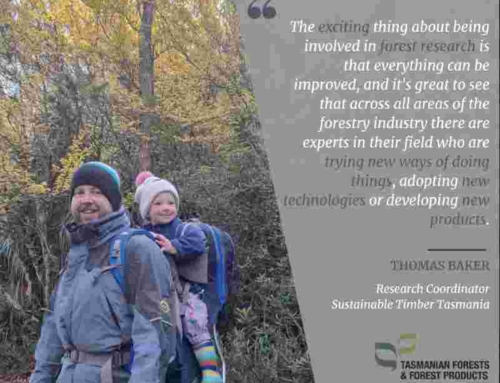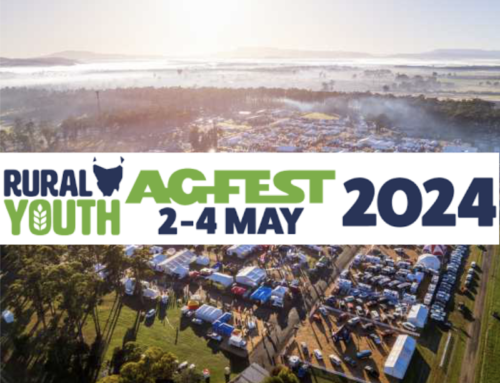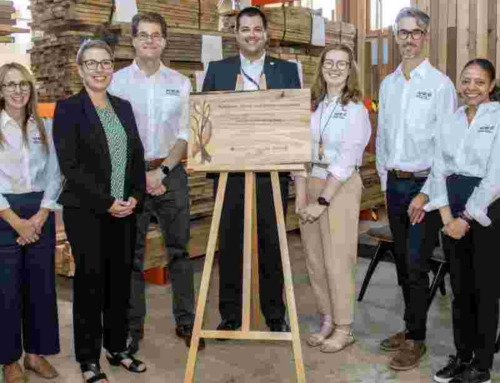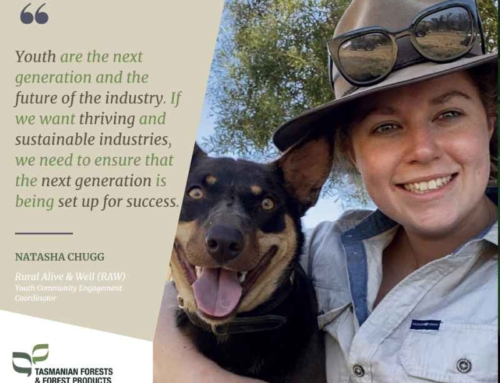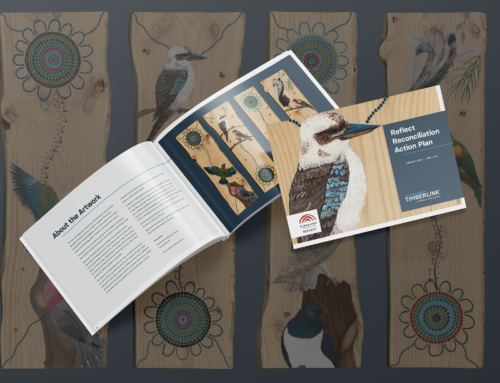Tasmania’s Regional Forestry Hub collaborates to further industry
Tasmania’s Regional Forestry Hub (the Hub) was established as part of the Commonwealth Government’s National Forest Industries Plan – Growing a Better Australia – A Billion Trees for Jobs and Growth, which is focussed on driving a billion new trees in forestry plantations to meet Australia’s future needs for wood and fibre in the next decade.
The Hub, in consultation with industry, community and government stakeholders, has identified four priority themes shaping its scope of work; access to land and land use policy for plantation forest investment; supply chain and infrastructure; climate change and carbon policy; and culture, skills and training.
Much of the Hub’s work is dependent on collaboration with key industry, government and community stakeholders. For example, collaboration with Private Forests Tasmania (PFT) across a number of areas has been a valuable exercise for both organisations.
“Not only have we been able to assist the Hub with data and information, we have been able to effectively leverage the work done by the Hub to assist in implementing our corporate plan, particularly around our corporate goal which focusses on improving regulatory efficiency and practical policy settings for private forestry,” explains Ms Penny Wells, CEO of PFT, and Chair of the Tasmania Hub.
PFT has drawn on the work completed by the Hub when preparing various government submissions, including a submission most recently around plantation forestry methodology to the Clean Energy Regulator. Building on the existing Emissions Reduction Fund plantation forestry methodology, the updated methodology will offer more opportunities for the plantation forestry industry to deliver low-cost abatement.
This example of collaboration has allowed the Hub to successfully advance its climate and carbon strategic priority – to drive positive climate outcomes.
The Hub has also worked collaboratively with TFFPN to support the development of TFFPN’s Forest Industry Workforce Development Plan (Plan).
“It was important for us to build on the extensive work completed by the Hub in the workforce, skills and culture space when developing our industry workforce development plan. The Hub’s workforce report was a great starting point for our plan as it identified the key opportunities and challenges for the industry,” explains Ms Therese Taylor, TFFPN’s Network Convener.
TFFPN’s Plan will identify current and future skills needs, and ensure that systems are in place to set the industry up for success in the future. It is planned to include the forest growing, harvest and haulage, and forest processing sectors.
The Hub is a member of TFFPN’s Workforce Project Steering Committee, and provides strategic direction on the project through this lens. This has allowed the Hub to further its workforce strategic priority – to develop a fit for purpose workforce.
The Hub is committed to ensuring it continues to work closely with key organisations to further industry goals, particularly as it focusses on planning for implementation of priority recommendations identified in its strategic assessment reports completed last year.

